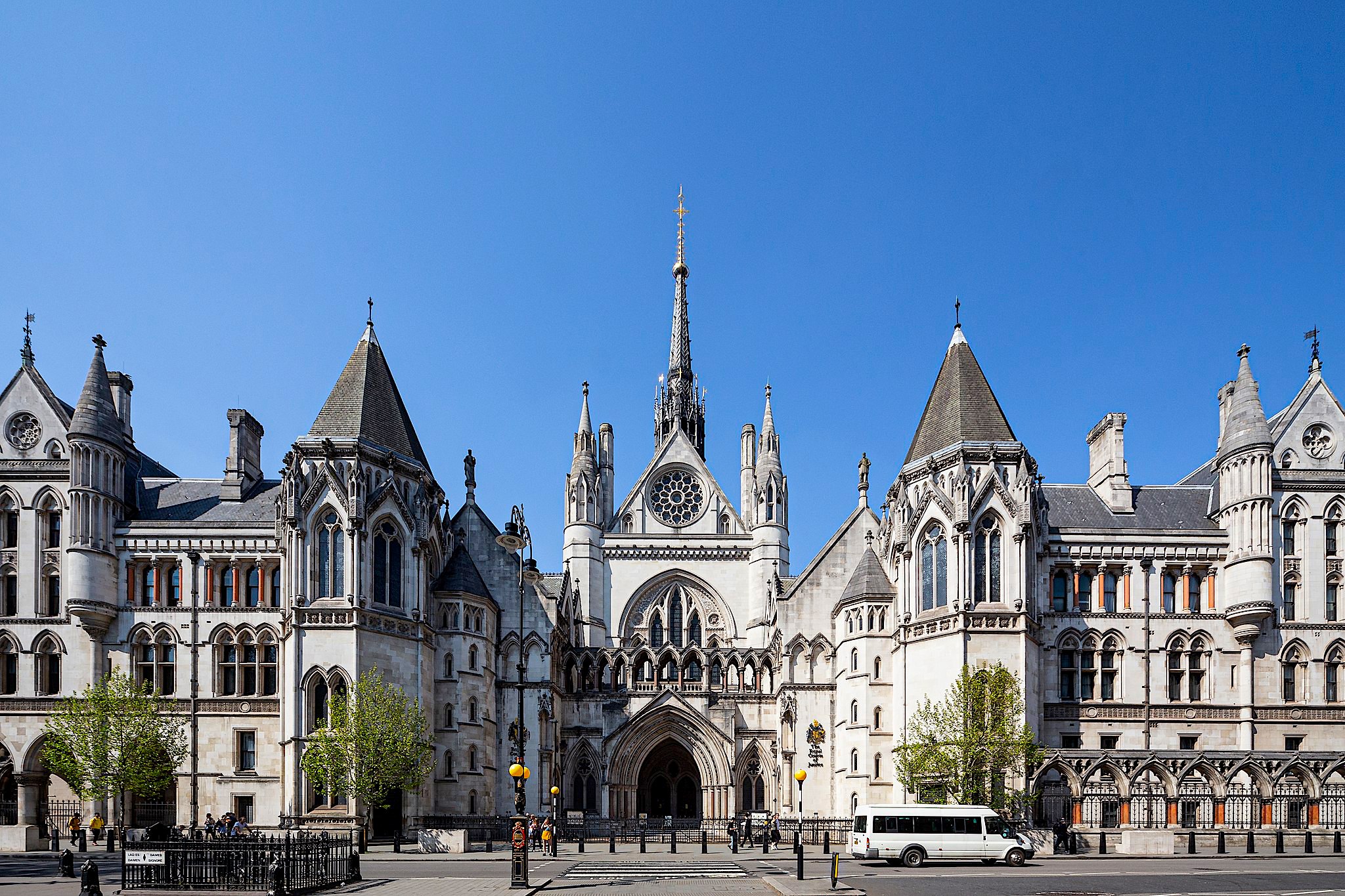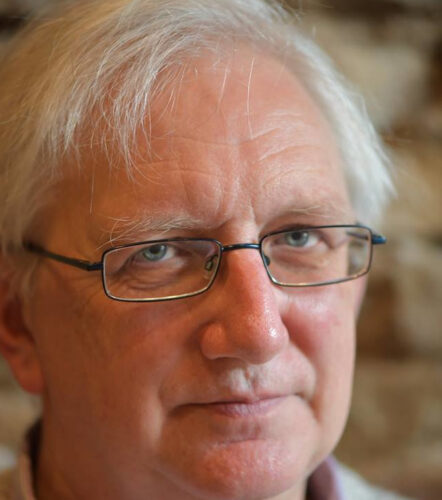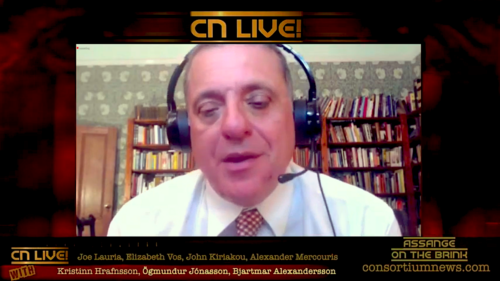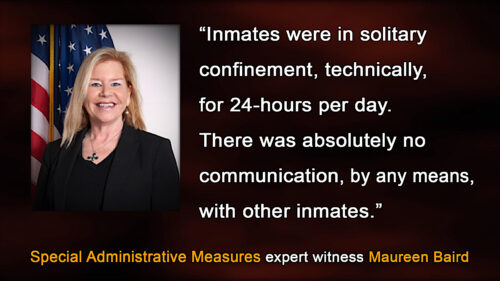The U.S. offer to keep Julian Assange out of SAMS and to let him to serve time in Australia if convicted amounted to new evidence not normally allowed under appeal procedures.
By Joe Lauria
Editor-in-Chief
Consortium News
 Writing on his blog two days after District Court Judge Vanessa Baraitser on Jan. 4 in London denied the U.S. request to extradite WikiLeaks publisher Julian Assange (on the grounds of his health and U.S. prison conditions that put him at extreme risk of suicide), former British diplomat Craig Murray made a prescient remark in light of what we know now:
Writing on his blog two days after District Court Judge Vanessa Baraitser on Jan. 4 in London denied the U.S. request to extradite WikiLeaks publisher Julian Assange (on the grounds of his health and U.S. prison conditions that put him at extreme risk of suicide), former British diplomat Craig Murray made a prescient remark in light of what we know now:
“I am not sure that at this stage the High Court would accept a new guarantee from the USA that Assange would not be kept in isolation or in a Supermax prison; that would be contrary to the affidavit from Assistant U.S. Attorney Gordon Kromberg and thus would probably be ruled to amount to new evidence.”
Indeed on Wednesday, just as Murray suspected, the U.S., in its application for appeal to the High Court in London to overturn the decision not to extradite, promised not to put Assange under Special Administrative Measures [SAMS], or extreme isolation, and that if convicted, he could serve his potential life sentence in a more humane prison in his native Australia.
That indeed amounts to new evidence, as Murray said, which is not normally allowed in an appeal. Rule 52.21 of the U.K. Civil Procedure Rules says:
(2) Unless it orders otherwise, the appeal court will not receive—
(a) oral evidence; or
(b) evidence which was not before the lower court. [emphasis added]
(3) The appeal court will allow an appeal where the decision of the lower court was—
(a) wrong; or
(b) unjust because of a serious procedural or other irregularity in the proceedings in the lower court.
(4) The appeal court may draw any inference of fact which it considers justified on the evidence.
The rule says an appeal court shall not receive new evidence in a case unless “it orders otherwise.” Did the High Court order the acceptance of this new U.S. offer and if so, on what grounds? The DOJ’s British prosecutors had every opportunity during five weeks of Assange’s extradition hearing last year to make this offer, but didn’t.
Consortium News legal analyst Alexander Mercouris told CN Live! on Friday:
“It is new evidence and that actually begs many questions about what the grounds of appeal … actually are. … I wonder whether the real thing that is being looked at here, the sort of thin point [the Americans] are allowed to say, is well, ‘Baraitser was wrong to go ahead and consider all this evidence [in her judgement] about prison conditions and we weren’t given the opportunity to state our case, and if we had been given that opportunity, we would have been able to [make these offers], and all of these problems that have been raised [about prison conditions] could have been allayed. …
‘Actually we’re not going to put in him in a SAMS, that’s not been our plan, we might send him to Australia’ … In a kind of way, they are actually accepting that Baraitser’s decision on the evidence … about the prison conditions was correct. If it was that bad, then of course she was right and you can’t appeal her. Because an appeal is when a judge gets it wrong, not when a judge gets it right.”
And yet the High Court nonetheless accepted this submission of new evidence and based its decision to grant the U.S. leave to appeal on it.
Being limited to only challenging Baraitser’s decision not to extradite on the prison conditions (and not on Assange’s health) the U.S. could not seriously try to argue that its Supermax prisons are not inhumane.
Bob Hood, the former warden of the ADX Supermax prison in Colorado, where the U.S. now promises not to send Assange, commented to Consortium News:
“As former warden of the United States ‘Supermax’ Penitentiary in Colorado, I can assure you that conditions at the nation’s ultra-secure maximum custody prison will be difficult. It would be common for an inmate like Assange to be placed on Special Administrative Measures (SAMs). In our country, this is the most restrictive prison and considered the X-factor among correctional professionals. If the death penalty is X, than being incarcerated at this prison would be X plus one. It is far worse than death because of the conditions of confinement.”
The CIA’s Say
WikiLeaks Editor-in-Chief Kristin Hrafnsson suggested to the same CN Live! program that perhaps the High Court was just allowing the U.S. it’s day in court.
But to do that, the High Court took seriously U.S. promises that on their face are untrustworthy, especially as the U.S. submission said it reserved the right to put Assange in a Super-max prison under special measures if “he were to do something subsequent to the offering of these assurances.” As CIA whistleblower John Kiriakou told CN Live! and wrote on Consortium News:
“If Julian were to speak to a journalist, if he were to look at a guard cockeyed, if he were to speak disrespectfully to an administrator, or if he were even to say something controversial in a private telephone call (which would be monitored, of course) that would be enough to send him to a SAM unit or even to ADX.”
Maureen Baird, a former warden at three U.S. prisons, testified for the defense at Assange’s extradition hearing that: “SAMs are decided by the attorney general and heads of the intelligence agencies.” This was the exchange on redirect examination of Baird by defense attorney Edward Fitzgerald:
Fitzgerald: “You were asked about the procedure to impose and remove SAMs and that it could include an intelligence agency. Is that the CIA?”
Baird: “It could be the CIA, the FBI, border control, together with the U.S. attorney and the attorney general.”
Fitzgerald: “If the CIA were involved, would they be consulted?”
Baird: “Yes, with the office of enforcement operations at the DOJ.”
Fitzgerald: “So what the CIA thought about an inmate would be an important factor?”
Baird: “Yes.”
After the Vault 7 releases the CIA became perhaps the most vengeful part of the U.S. government towards WikiLeaks. If the U.S. were to break its word, what more would Britain do than issue a formal protest, if that?
By its own rules, the High Court could have and should have rejected this new evidence and turned down the U.S. application for appeal.
But as this is very much a political trial, and as politics is very much theater, the High Court may just be trying to allay the rage of Washington (and probably of the Foreign Office and British intelligence too) if it finally decides against the appeal and lets Assange walk, probably with assistance, out of Belmarsh prison.
Is the Assange Case Collapsing?
Many people in the Assange camp are saying that the case has finally collapsed. But given the political dynamics of Britain’s relationship with the U.S. that it is far from a sure thing.
On Wednesday, The Guardian quoted Nick Vamos, a partner at the Peters & Peters law firm and a former head of extradition at the Crown Prosecution Service:
“‘It’s not unusual in extradition, but it is for the Americans to give this type of assurances because their previous approach over many years has been to say, ‘the US legal system is a fair one and our prison system is capable of dealing with people with all kinds of conditions …
‘The difficulty [Assange] and his legal team now have is that, if the court says we are denying extradition because we are concerned about his treatment, we are worried that a, b or c might happen, and the requesting state then provides an assurance which says, ‘under no circumstance will that ever happen’, then it defeats the objection.
There’s also a longstanding history of our courts accepting the assurances from requesting states. The question is: ‘Does the assurance address it in fact or can it be undermined by suggesting that it is not quite as good as it appears or that they will dishonour it anyway?’”
This is no time for political theater. Assange’s health deteriorates by the day behind bars. Recent revelations that a key U.S. witness fabricated evidence means that Assange did not engage in hacking to obtain material that he published, as the U.S. alleges. His work is routine journalistic practice, not espionage.
The High Court should never have accepted this new evidence and should show extreme skepticism towards U.S. promises. It must muster a modicum of the courage Assange has displayed to stand up to Washington and tell it what it too rarely hears: No.
This time we really are discharging Julian Paul Assange.
Joe Lauria is editor-in-chief of Consortium News and a former UN correspondent for The Wall Street Journal, Boston Globe, and numerous other newspapers. He was an investigative reporter for the Sunday Times of London and began his professional career as a stringer for The New York Times. He can be reached at [email protected] and followed on Twitter @unjoe





Reading this article is easy to understand whats matters… They us and uk like old westerns want Julian live or dead… itsa filthy wish to said to free expression watch it out fellas… I am very worried with this case I ve been following ever since…I only wish something, somehow could be find in order to let Assange go free.Its too bad this film..
If I was watching this, on the screen I had already left my place and walked out.. as I intended to do in the movie, once upon a time in america..longtime ago..
Best wishes
Assurances from the USG aren’t worth the powder to blow them to hell. Julian doesn’t have a prayer. The US is hell bent on killing him and Britain is just a vassal.
Thank you all for covering this so diligently. Write AG Garland, attend an event, make a post about it. We need all hands on deck for JA.
Even the description of the sort of place anyone, not just Assange, should be incarcerated, is enough to stop following the US lead as if it is some sort of model to follow in any important matter. The huge number of incarcerations in the USA, for “crimes” of all sorts, with courts and judges all over the country with all sorts of prejudices, has allowed people without access to large fortunes to be arrested, charged, kept for years before any finding of guilt and many never to be released .
Julian’s only crime was to embarrass the USA by exposing some of its war crimes. The UK is complicit in the kidnapping and holding of Julian, giving in to the “justice” of the USA, unchanged under either Party.
“The High Court at the Royal Courts of Justice.” What a complete mockery.
Free Julian Assange Now.
“Without a Free Press, there can be no Democracy”
Thomas Jefferson
As an American, I am embarrassed, distraught and in dispare. Julian has not been convicted of Anything!! He can’t be held a second longer. The US must be held responsible for violation of Julian’s human rights.
Most British and English elites are hypocrites who only claim the high ground only when it suits them. Britain is a land of bullies and cowards. It was for this reason that that the Americans had a revolution, but now we see most evidently with Trump that the same attitude is now infecting the US. What a shame.
Guilty or not guilty the United States and Britain have had 12 years to make this case.
Persons in pre-trial detention have the right to be tried within a reasonable time or else be released. In accordance with the presumption of innocence, people awaiting trial on criminal charges should not be held in custody, as a general rule (ICCPR, Article9 (3)).
“Many people in the Assange camp are saying that the case has finally collapsed. But given the political dynamics of Britain’s relationship with the U.S. that it is far from a sure thing.
On Wednesday, The Guardian quoted Nick Vamos, a partner at the Peters & Peters law firm and a former head of extradition at the Crown Prosecution Service:”
In pertinent part Vamos said:
“There’s also a longstanding history of our courts accepting the assurances from requesting states. The question is: ‘Does the assurance address it in fact or can it be undermined by suggesting that it is not quite as good as it appears or that they will dishonour it anyway?'”
From my distant view, even after having followed this corrupt and unethical Inquisition from its beginning, I find it impossible to believe that the U.S. DOJ can be trusted in this affair, regardless of any assurances to the contrary.
It appears that, as recalled by Joe Lauria in this update, Craig Murray was very prescient to warn that British law does not allow the appellate court to include the review or consideration of unsolicited “new evidence”; not presented in the lower courts proceeding. My question here is, beings this is the law, why was this very germane detail conveniently left out of Nick Vamos’ quotations by the Guardian; especially beings he is presented as “a former head of extradition at the Crown Prosecution Service.”
Thank you again to ConsortiumNews and Joe Lauria for the update here, and the interesting video conference this past Friday. I was a bit taken aback,
not only by so few comments, but by the comments being closed so quickly.
As Usual,
EA
Justice appears to be dead in the UK, Australia and of course, in America too. Iceland seems to be a sane and functioning nation though. Send Julian to the sane place and have at least one place of sanity on the world, although New Zealand also seems a sane place —-It is both tragic and sad that so many nations lack both heart and soul.
I’m think Kim Dotcom would dispute New Zealand’s sanity.
Thanks again Joe for keeping the CIA-Pentagon attack on freedom of speech alive;
but in truth they had no case to begin with
Does anyone still believe that going by the book will save Julian Assange from US rules?
Does not the word, malevolent, sufficiently convey what the rule of a totalitarian, hegemonic imperialism is all about?
For millennia, humankind has faithfully let itself be blindsided by those who compiled the narrative words of the ‘holy’ bible.
Its story is the greatest unverifiable conceptual myth of all-time!
These same dogmas apply – though much less opaquely, to the contemporary juridical books.
Contemporary western institutional jurisprudence is, therefore, in its observance, equivalent to Church doctrine, yet is contemporaneously more provably sullied, when it comes to its veracity.
The Church’s task has always been to teach that the myth is truth, whereas human law consistently tries to prove its own infallibility – the carrying out of the death penalty, in the US case, being the prime example.
There can be little doubt that the subjection of young minds to the fictions of monotheistic religious dogmas alters those individual’s distinction between factual realities and other systemic contrivances.
Religious zealots do not make for unbiased lawyers; likewise, nor do they make for unbiased legislators, teachers, or in many instances even parents.
Our Constitution offers both the freedom of religion and the freedom from religion, we are a secular society by design. Fringe zealots have opposed that tenet since its conception, which is, of course why they are considered zealots.
Actually, Thomas Paine, in his classic book “The Age of Reason”, resolved these issues long ago for everyone, excepting the monotheists of course.
As Usual,
EA
PS F R E E J U L I A N A S S A N G E ! ! ! !